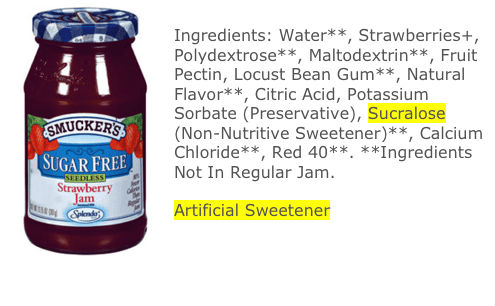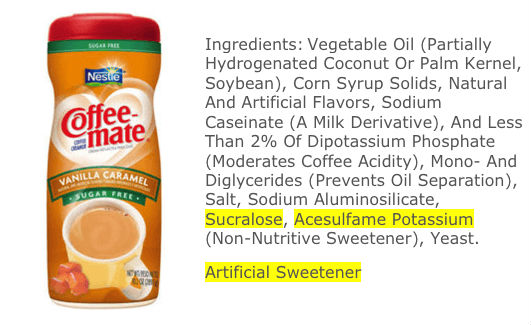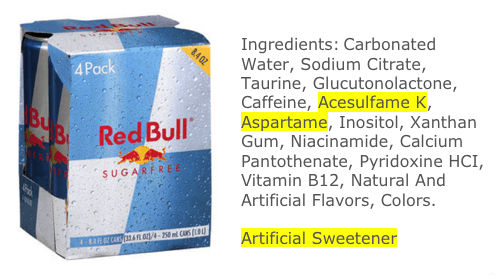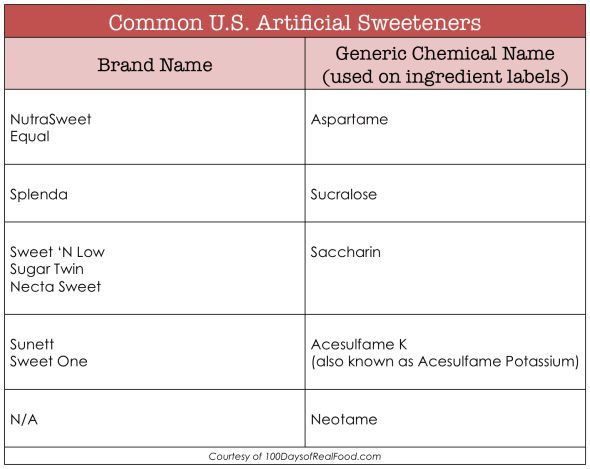Whenever you see some food that is labeled as Sugar-Free you should know that in most cases this food doesn’t contain standard sugar, but it does contain artificial sweeteners. That’s why it is crucial to be careful and read the labels of any product you are planning to buy and use.
Are you are of the fact that artificial sweeteners were designed and created in laboratories by scientists? Do you know that many of these artificial sweeteners were first introduced into the human diet 2-3 decades ago?
The fact is that the human diet in the last few decades was radically changed and this change has not happened for thousands of years.
If you are like most people then you are probably wondering how artificial food can affect your health.
According to the Sugar Association, all these artificial alternatives are chemically produced formulas that cannot be found in nature. This means that although modern people are trying to reduce the intake of processed, white sugar, it sometimes might be a better idea to choose white sugar instead of a chemically produced artificial sweetener.
Of course, there are some sweeteners that can be treated as real food, but their percentage is very low.
A few examples of “Sugar-Free” products
(Obviously, there are many potential problems related to the labels of these products, but we will still list these products)
Smucker’s Sugar-Free Strawberry Jam
Ingredients: Strawberries, Water, Maltodextrin, Polydextrose, Locust Bean Gum, Fruit Pectin, Citric Acid, Natural Flavor, Sucralose (Sweetener without nutrients), Potassium Sorbate, Red 40, Calcium Chloride, Only three of these ingredients are found in regular jams.
Nestle Coffee-mate Vanilla Caramel
Ingredients: Natural and artificial flavors, Vegetable Oil, Sodium caseinate, Corn syrup solids, Monoglycerides, diglycerides, Dipotassium phosphate, Yeast, Acesulfame potassium (artificial sweetener), Sodium aluminosilicate, Sucralose (artificial sweetener).
Red Bull
Ingredients: Sodium citrate, Carbonated water, Glucuronolactone, Taurine, Aspartame (artificial sweetener), Acesulfame K (artificial sweetener), Xanthan gum, Inositol, Calcium pantothenate, Niacinamide, Vitamin B12, Pyridoxine HCI, Colors, Artificial, and natural flavors.
Recent Headlines
- 100 Days of Real Food
- 100 Days
- Coca-Cola ad to defend artificial sweeteners
- 6 Reasons Why You Can’t Lose Weight
- 100 Days of Real Food
Different types of artificial sweeteners
People usually know a few artificial sweeteners, but the truth is that there are dozens of them and many people are not aware of the fact that they are consuming these sweeteners even after they’ve read the label.
It is good to point out that very often Stevia is considered an artificial sweetener. However, this sweetener comes from the stevia plant. The truth is that in many cases, this natural sweetener is processed, so in order to avoid any mistakes simply avoid products that include stevia.
Share your knowledge with the FDA
Are you are of the fact that you can share your negative reactions and health issues linked to foods regulated by the FDA? No one knows how seriously the FDA takes these complaints, but it won’t cost you anything to report these changes. Look for FDA’s number for your state on their official website.




